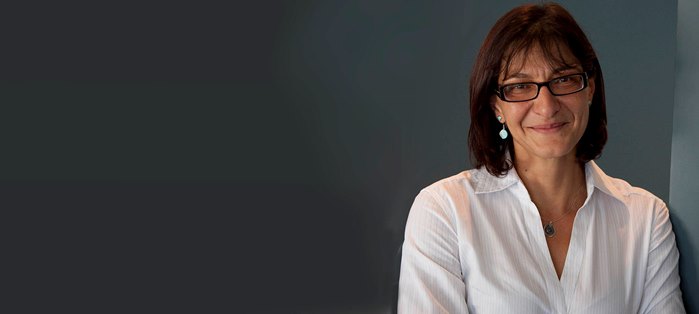News
3D printing bone tissue
Jun 28 2022
In celebration of International Women’s Day 2015, Australian Laureate Fellow and ACES Associate Director Professor Maria Forsyth from Deakin University, has penned an open letter to her fellow ACES women in science.

My fellow ACES women in science,
What a privilege it is to be a woman in science!
What a privilege, to be in a career that is not only a job, but a hobby.
What a privilege, to be able to help shape so many young lives and minds through teaching and research training.
What a privilege, to have a career that allows us to contribute to advancing life-changing technologies, for the betterment of society, for enhancing the earth’s sustainability.
You are a role model!
Each and every one of you is an important role model for young girls contemplating a science education.
Even today, the percentage of girls taking the ‘hard’ sciences and mathematics is significantly lower than boys. The perception that science is ‘too hard’ or simply ‘boring’ is still out there among young women. I know this from a very personal perspective with my 16-year-old daughter, but, she’s seen the light! I encouraged her to ‘dip her toe in the water’ with physics and she is now loving it.
The key seems to be encouragement, encouragement and more encouragement, making it relevant, and making it fun!
My year 11 and 12 chemistry teacher, Miss Janet Forster, was my inspiration to do chemistry. Her passion for the subject and her encouragement to her students to question and have an inquiring mind certainly helped me make the decision to continue with chemistry.
Find yourself a mentor
There were very few female role models when I was doing my degree, and even fewer as I entered the work force as a young researcher. However, there were still a couple of incredibly encouraging and supportive male role models, which thankfully countered some of the more difficult situations I faced.
Finding a mentor (or two), male or female, is important in negotiating the challenges of an academic career (I’m sure it’s true in industry too!).
I still look up to a couple of women whom I admire and consider role models for myself. Dr. Anita Hill, who is at the top end of the CSIRO executive, and Prof Lee Astheimer, Deakin University’s Deputy Vice-Chancellor (Research) are passionate, encouraging and enabling.
What’s holding you back?
There is no doubt that there are still challenges for women in the strongly masculine scientific environment.
As women in science, I find that we tend to be less willing to put ourselves forward, less confident in our abilities and less pro-active in taking leadership roles.
In my own experience, this has been due to fear of failure or the thought ‘I’m not good enough; I’m an impostor; someone will find me out’.
My advice is to ‘feel’ the fear, and plunge forward anyway. You have to overcome your natural tendency to hold back. That could mean going ahead and applying for a grant that’s a little outside your field, or nominating for an award which would acknowledge your achievements, or sitting on a committee or board on which you will be the only woman.
It’s only by putting ourselves into those situations and having some influence on the deliberations of those committees that we can balance decision making.
Work together
A key part of success for me is to be open to collaboration, to present my work to different groups nationally and internationally, and to work with others as part of a team.
Firstly, teamwork is much more fun than working solo and secondly, scientific and technological problems can be solved more effectively as part of a team.
For those of you who might be thinking of having a family and wondering how you will balance everything, I’m here to tell you – it CAN be done!
Start by building a supportive network and arranging flexible working arrangements. Ensure you collaborate effectively so that your output and track record don’t suffer, but also so that you keep your mind active while you have a family.
Being a scientist means making a valuable contribution to our society – for example to climate change, to food and water security and to better ageing.
Being a woman in science also means expanding the pool of talent and providing a more diverse approach to problem solving.
On this International Women’s Day, I congratulate you on your contribution to society through your work, and implore you to continue to pave the way for more women just like you.
Maria.













